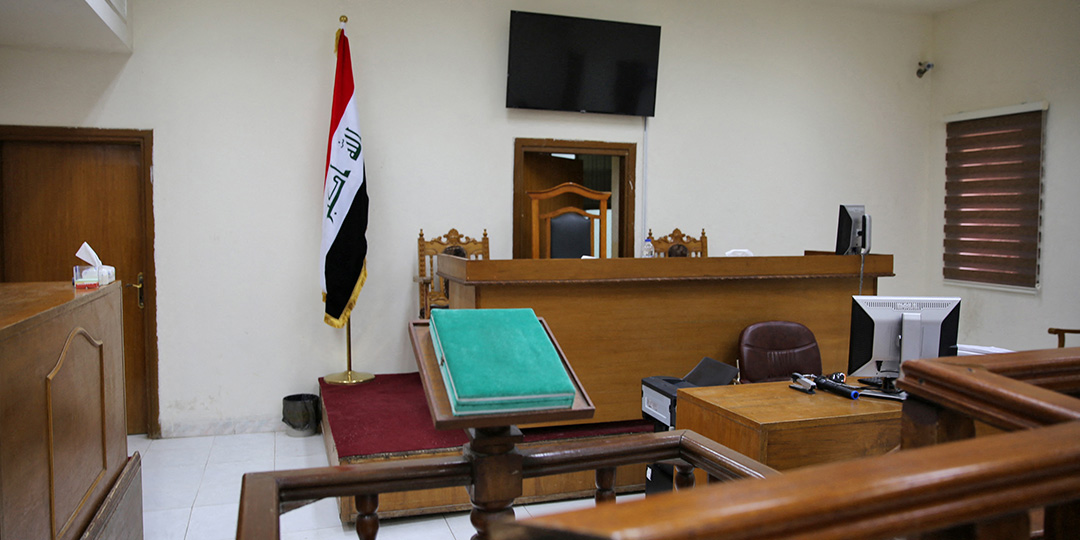Adrien Guihal, who claimed the 2016 Nice attack for the Islamic State group, will be tried in Iraq alongside 46 other French nationals recently transferred from Syria, a source close to the investigation told AFP.
“Adrien Guihal, known as Abu Osama al-Faransi, is still under investigation,” said the source, speaking on condition of anonymity because they are not allowed to speak to the media.
Guihal “was brought to Iraq two months ago with another 46 French nationals that will be tried here,” the source added.
A veteran member of France’s jihadist networks, Guihal made headlines when he was recognised as the man behind the voice that claimed responsibility for the July 2016 attack which killed 86 people in the French city of Nice.
He is thought to be among the most dangerous members of the French contingent in the ranks of the Islamic State group (IS), whose self-styled “caliphate” spanned huge swathes of territory in Iraq and Syria before collapsing in 2019.
Guihal, who joined IS in 2015, was detained in the Syrian city of Raqa in May 2018.
He spent years in Kurdish prisons in Syria before being brought to Iraq in July, along with 46 other French nationals who are being questioned over their alleged involvement in crimes committed by IS in Iraq.
– ‘Interrogations ongoing’ –
“Interrogations are ongoing with the 47 French nationals,” the Iraqi source said, alleging that “it has been proven” they are all members of IS.
Guihal’s lawyer Etienne Mangeot said his client “has never set foot in Iraq. He has nothing to do with that country.”
“It makes no sense for him to be tried there,” he told AFP in France.
Last week, Iraq’s National Intelligence Service said the suspects were “wanted by the Iraqi judiciary for their involvement in terrorist crimes committed in Iraq”.
Iraqi courts have handed down hundreds of death sentences and life prison terms to people convicted of terrorism offences, including hundreds of foreign fighters — some caught in Syria and transferred across the border.
In 2019, the courts sentenced 11 French nationals to death. Their sentences were later commuted to life in prison, according to a judicial source.
Some human rights groups have denounced “terrorism” trials in Iraq as rushed.
The country still has mass graves and many personal testimonies of IS brutality to be investigated.
In 2024, after the mission of the UN body investigating IS crimes ended, Iraq created the National Centre for International Judicial Cooperation (NCIJC) to gather evidence and document IS crimes.
The centre serves as the main point of contact for foreign jurisdictions investigating alleged offences.
Mangeot warned that France seems to be outsourcing trials to a third country “where the death penalty is still in force.”
He said Guihal’s rights can only be respected by repatriating him to France for trial.
In France, which has been the target of repeated jihadist attack over the past decade, repatriation of IS suspects and their family members is a deeply sensitive issue.
Since 2019, France has repatriated only 179 children and 60 women, most of whom were held in detention camps in Syria.
rh-ak/bha
© Agence France-Presse








